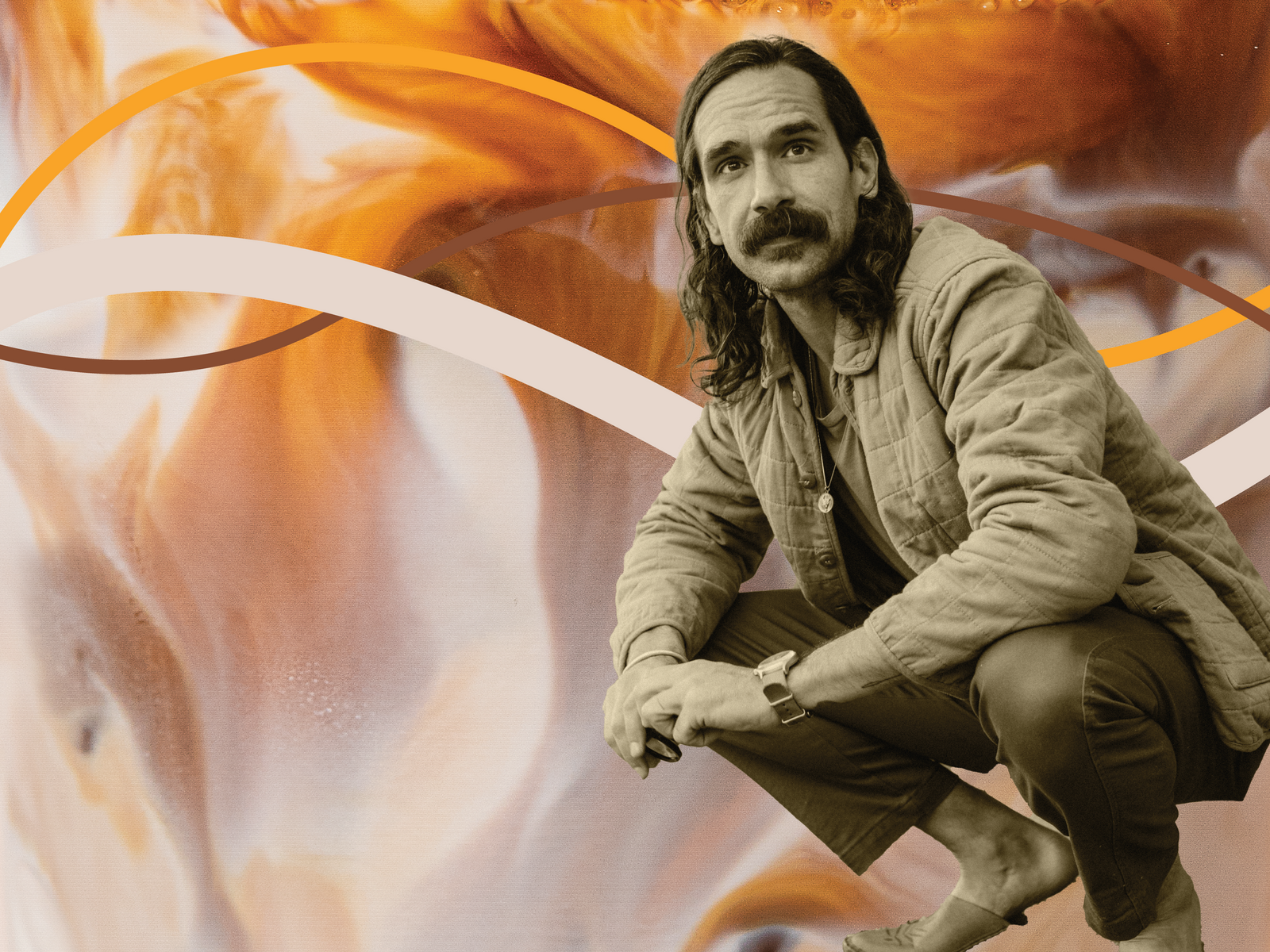In our Inspiration Fuel series, we interview writers, artists, entrepreneurs, musicians, and everyday heroes to learn how they manage the ebbs and flows of motivation and inspiration in the pursuit of their life’s callings.
John Spaedt came to his life’s work late. After studying literature, philosophy, and then law in graduate school, he found himself disillusioned and struggling with his career path, when a friend suggested he look into the field of speech-language pathology.
Now, a decade later, he works as a traveling speech therapist in rural nursing homes all over the country. He has discovered a true passion for his role as an advocate for the elderly and ill patients in his care, and it is inspiring to listen to him reflect on what it means to care for some of the most vulnerable among us.
For this edition of Inspiration Fuel, we reached out to John to hear how he discovered this passion, how he stays motivated despite the emotional burdens of his work, and what advice he has for finding – and holding on to – inspiration.
*****
What do you do for a living and what drew you to the job in the first place?
I am a traveling Speech-Language Pathologist, or speech therapist. I work in nursing homes across the country, helping people with tracheostomies learn to breathe and speak again, making sure that people with dementia are able to participate in activities of daily living, and monitoring the diets of people with swallowing disorders.
As for how I ended up here, I had decided to drop out of law school. I was at an age where I wanted something practical, and a friend who was a speech therapist encouraged me to pursue it. I applied to a grad program, got in, and here I am.
Now that you’ve been doing it awhile, what parts of the job have become a struggle for you, and, on the flip side, what continues to draw you to it?
This is a big one! I don’t want to dwell on the negative so I’ll just quickly list some the struggles: balancing patient care needs with the for-profit needs of the facilities, burnout, balancing paperwork and care, and healthcare workers who just are not empathetic to the cognitive needs of people with dementia, traumatic brain injury, or other neurological impairments.
But it’s my patients who keep me refreshed and draw me back. It is difficult to manage progressive diseases, where you know that all you can do is manage the decline, but that is still something.
And there are cases of improvement. One of my most rewarding patients was a man who was on a ventilator when I met him. He couldn’t speak or eat by mouth. It took many months, a day at a time, and the day before I discharged him, I bought him a cheeseburger and fries, and we talked about life in the ‘70s.
There are certain jobs that we, as a society, absolutely need done but which are so physically or emotionally difficult that few of us have the personality for them. Do you think yours is one of these? And, if so, why do you think you’re able to show up for it when so many of us couldn’t?
If you look at my background, it wouldn’t seem that I have a “calling,” or that I was pulled to healthcare from a young age. But, it’s strange, having found myself in it, I do think I have the personality for it.
‘They might not remember your name, but they will remember how you made them feel.’
I think my [philosophy] background helps me to remember that we are treating not just “patients” but entire human beings. Even the simplest act, such as getting a cup of coffee for someone, can be enormously impactful when that person relies 100% on the kindness of others.
What does success at your job look like? When you have a good moment, one where you know for sure that you’re good at what you do, what does that moment feel like?
There is a Maya Angelou quote you will often see in nursing homes, something to the effect of “They might not remember your name, but they will remember how you made them feel.”
In managing progressive diseases, quality of life is the most important thing. My goal is to create an almost familial, homey environment. Because, let’s face it, in long-term care facilities, these are people’s homes.
So even if I’m having a difficult day or during difficult weeks, I just focus on getting one small thing – like a smile from an unhappy patient. You can hang a lot on that when the going is tough.
The elderly are divine messengers.
The pressures of your job are intense and I imagine you have days when you feel completely burned out. And yet one thing that inspires us about you is that you always seem to prioritize filling your life with creativity and adventure. Will you tell us a bit about what you do for fun?
The elderly are divine messengers. They remind us how fleeting life is. All of my most cherished moments with patients have been interpersonal, intimate, rather than clinical. And one thing I hear all the time is: Enjoy your life while you are young – live fully.
So my beautiful wife and I decided to travel, since my job allows that. A few years ago we gave up our apartment in Memphis and now we live in a 26-foot RV, which we have taken from Reelfoot Lake in East Tennessee, to Louisiana, to Augusta, Georgia, all the way to the South Gate of Yosemite National Park in the foothills of the Sierra Nevada. We travel with our new pandemic puppy Flora, and our road kitty, Halle Berry. We kayak, bike, and hike.
Do you believe passion, or motivation, or inspiration can be manufactured? If so, how do you do it? And, if not, where do you think it comes from?
I guess I would say the foundation for inspiration can be manufactured. I don’t think any creative or spiritual endeavor is much different than a physical one. If you want to run a marathon, start running, and keep running consistently.
I, personally, love to write fiction. It helps me to find meaning in what I see at work, and I hope, someday, to advocate for my patients through fiction.
But writing is hard as hell. The only thing that works for me is to sit there and do it, even when you don’t want to. Just like running. But, instead of the pain of sore muscles, it is the pain of boredom that you have to break through.
There are lots of us who struggle to maintain enthusiasm for the work or projects that we love, even if we feel a calling to pursue them. For those of us who aren’t yet at your level, what advice would you give for those dark days when we want to call it quits?
Ha! I’m not sure I’ve attained a greater level. But I will say, on the worst days, I listen to podcasts, audio books, or interviews with other writers.
Especially in this time when we can’t be close, to hear that others who have attained success in their creative endeavors also struggle in the same way I do offers a wonderful sense of community and reminds me I’m not alone. Another way to achieve this sense of community when the well seems empty is to consume other media of all forms and genres.
And, finally, give yourself a break. These are the tools I’ve used. Oh, and journal. Corny, but it works.
And, finally, how do you take your coffee?
Black. And I’ll admit, a big reason I did this interview was because you offered to send me some free Jot! Won’t lie, the first time I had it was after a little too late of a night with a little too much whiskey, and, man, it saved the day.
*****
Follow John and his wife, Beka, on their cross-country adventure on Instagram @waldenonwheels.
We’re always on the lookout for more artists, creatives, entrepreneurs, and everyday heroes to interview for our Inspiration Fuel series. If someone you know is pursuing their life’s calling in a way that inspires you, tell us about them by emailing: adam@jot.co.









